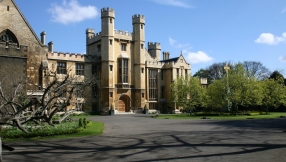
Scottish ministers have been accused of failing to properly consider women and girls in its plans to reform gender laws.
The Scottish Government is currently considering whether to reform the Gender Recognition Act 2004 to allow a person to change their legal sex based on self-identity.
In a letter to The Times, a group of 25 academics and activists criticised the 'poor quality' of the Scottish Government's equality impact assessment (EQIA) into the proposed changes and urged it to make amends 'well ahead of bringing forward any legislation'.
'The Scottish government consultation failed to consider the implications for the rights of women and girls of allowing individuals to change their legal sex by means of a simple declaration,' the letter said.
Signatories of the letter include Scottish academics Kath Murray, Lucy Hunter Blackburn and Lisa Mackenzie, and former Labour MSP Marlyn Glen.
They said that existing legal protections for single-sex spaces were 'not always properly understood and/or applied'.
'We believe the lack of a proper EQIA has been damaging to the debate about reform of the GRA and urge the government to make sure one is now carried out, before introducing any legislation into the Scottish parliament,' they wrote.
The letter was published in the same week as Nicola Sturgeon joined the National Advisory Council on Women and Girls to celebrate the publication of its first annual report.
At a public meeting in Edinburgh on Thursday, feminist group For Women Scotland said that existing rights should not be eroded in order to accommodate the needs of vulnerable people.
Susan Smith, of For Women Scotland, said: 'We are concerned that the Scottish government is sleepwalking towards a significant erosion of women's rights, both in terms of proposals to reform the GRA to allow self-identification and the failure to prevent other organisations running ahead of the law and adopting policies which are in breach of the Equality Act.
'We're not here to quibble about toilets and we're not here to create trouble for those who have battled crippling gender dysphoria. We welcome extra provisions for other vulnerable groups that don't involve dismantling existing rights. If we cannot see sex, then we cannot see sexism, we cannot define sexuality, and it is the most vulnerable women who will suffer from this.'
The Scottish Government's own consultation into the proposed changes revealed widespread concern about the impact on women and girls.
The Scottish Government said in a report that safety had been the most commonly expressed concern out of the 15,000 responses.
Respondents feared that women would be put at risk in toilets, changing rooms, hospital wards and shelters if they were forced to share spaces with men who say they identify as women.
'Where respondents explained their concerns, it was often to suggest that the proposal would allow 'any man', 'predatory men' or 'biological men' to gain access to women's spaces where they could pose a potential threat to women's safety,' the report said.













